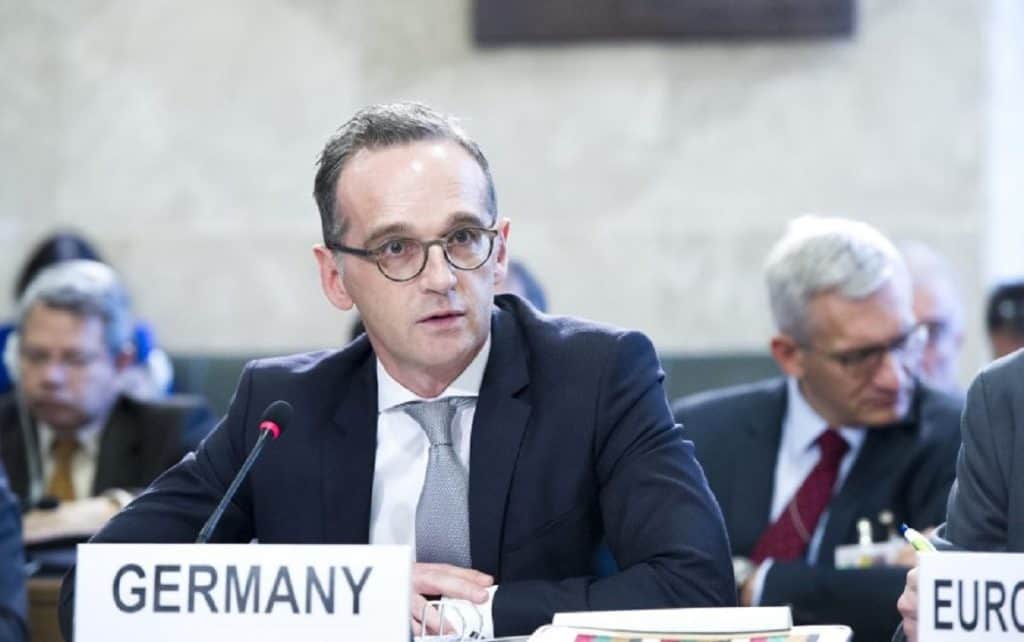“Europe is not likely to have any sides in the US-China power competition”
By Joshua Bernard Espeña and Don McLain Gill
Early in September, Germany released its Indo-Pacific initiative in a 40-page document in German. Moreover, German foreign minister Heiko Maas commented that their future will depend on their engagement with the Indo-Pacific where they want to help shape an order based on rules and cooperation and not by the strong.
Some analysts say that Germany’s Indo-Pacific initiative officially signals its active contribution to join the anti-China club as the United Kingdom and France also launched their own versions in the past years. However, things on the ground are significantly more complex than that. Conversely, such initiatives are embedded in strategic motives, that is, to prevent a conventional US-China war in the region to benefit the continuity of the global supply chains through the emphasis on multilateralism and international law.
The Indo-Pacific region constitutes more than half of the world’s total population and is filled with critical resources needed for state development. In recent decades, the region is also home to rapidly growing economies such as China, India, and Vietnam. The region now accounts for almost 40% of global gross domestic product (GDP). With the rise of Asia, the region is also gaining in economic and political importance.
Another feature of the Indo-Pacific is the geopolitical competition between the United States and China over influence over the strategic region. This has served as a cause of major concern to the European states given that the economies of the European and Indo-Pacific regions are closely intertwined against the backdrop of the global supply chains. Major trading routes pass through the Indian Ocean and the Pacific Ocean. If a conflict continues to erupt, the fate of commerce will be at the hands of the competing parties. This will have adverse implications for global trade and economic development.
As a result, states such as France, the UK, and most recently Germany have begun recalibrating their policies to pay more attention to the developments in the Indo-Pacific. This is not to explicitly state that these European states want to take part in power competition against China. Europe is a growing trade partner of Beijing and it will not jeopardize its trading relations with China. However, this renewed attention seems to depict the Europeans’ anxiety over the implications of great power competition in the region.
In a world where uncertainty is for certain, states have to maximise their relative power vis-à-vis others by becoming a regional hegemon in their backyard. The COVID-19 pandemic-stricken Indo-Pacific attests to this as the US and its regional allies and partners push back an overly ambitious China, particularly in the South China Sea.
Assuming that China continues to rise even after the global pandemic, the US will move to great lengths to prevent it from doing so which can ensure an intense security competition in the region. Washington has been enhancing the Quadrilateral Security Dialogue (Quad) which continues to build a more robust anti-China coordinated network; it is also competing with China to win over the Association of the Southeast Asian Nations (ASEAN).
As of August, the US and China are seen to be posturing for a conventional war scenario. China has launched an “aircraft carrier destroyer” medium-range ballistic missiles in the South China Sea, while the US has consolidated its network to improve posture in the Pacific. Even if China seeks to reset relations, or Joseph Biden wins in the US 2020 elections, Washington and Beijing are now pinned to a point of no return.
Despite the perception that the UK, France, and Germany aim to construct an anti-China battalion with their turn towards the Indo-Pacific, the reality on the ground is much more complex than that. Their geographic distance to employ force and their increasing economic interdependence with China will likely serve as two major challenges to make this happen.
With the stopping power of water and the constraints posed by the geographic landscape, the three European states may well resort to the spirit of multilateralism and goodwill in international law. In fact, they have not directly quoted China as the primary disruptor of a free and open region, unlike the US.
Realistically, if conflict breaks out, it will be less likely that these European states will take sides due to economic and political issues. Some argue that such ambiguity is better than nothing. Yet this provides no clear strategic actions for their objectives in addressing and identifying who is disrupting the global supply chains.
On one hand, the European states would want to refrain from identifying themselves as being great dependents of the US’ strategic blueprints, but on the other, they too hope to constrain China from making and taking revisionist and predatory policies. In short, these initiatives serve to avoid war and make everyone abide by the rules. However, everyone has a vote in the international system. With uncertainty in place, such initiatives may not yield fruitful outcomes since the maximisation of power remains the name of the game.
ABOUT THE AUTHORS:
Joshua Bernard B. Espeña is a defence analyst in the Office for Strategic Studies and Strategy Management of the Armed Forces of the Philippines. He currently pursues his Master’s Degree in International Studies at the University of the Philippines, Diliman. He writes on the Great Power Politics of the Indo-Pacific, Philippine Strategic Culture, and ASEAN Studies.
Don McLain Gill is pursuing his master’s degree in International Studies at the University of the Philippines Diliman. He has written extensively on issues of regional geopolitics and Indian Foreign Policy.
(The opinions expressed in this article are solely those of the authors and do not necessarily reflect the views of World Geostrategic Insights)
Image Credit: Flickr







